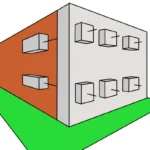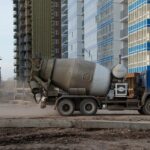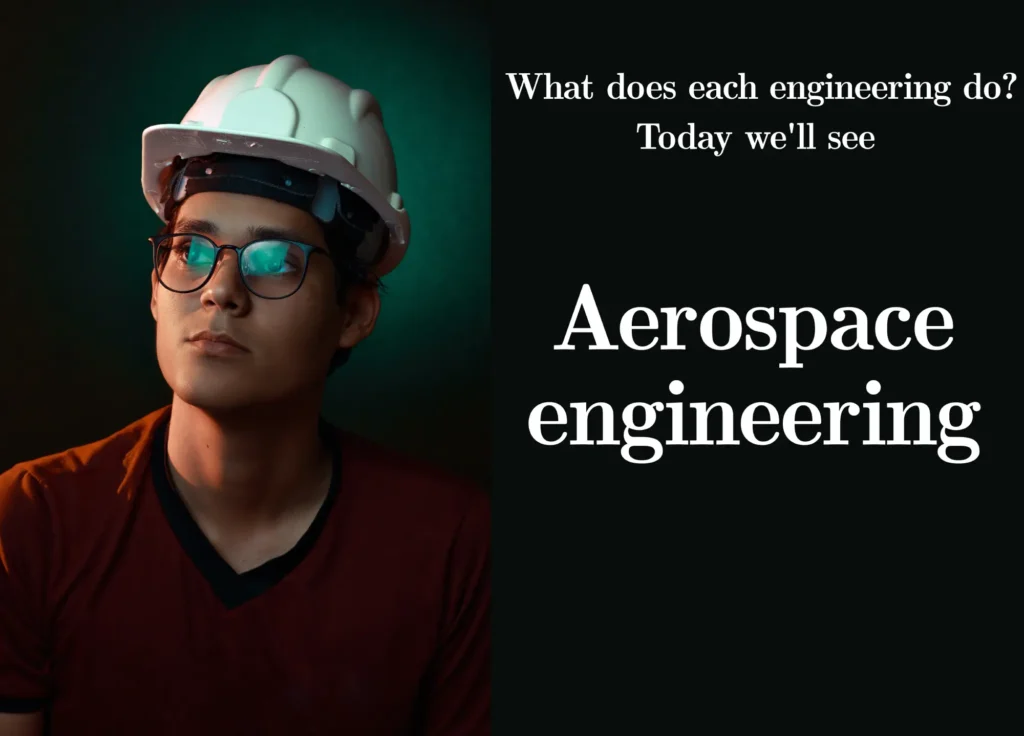What is Aerospace Engineering?
Aerospace engineering is a discipline that focuses on the design, development, and maintenance of vehicles and systems used in aviation and space exploration, such as airplanes, rockets, satellites, and spacecraft. It combines principles from mechanical, electrical, and software engineering to create solutions that operate in the extreme environments of space and the Earth’s atmosphere. Aerospace engineers work in various areas, including aerodynamics, propulsion, structures, navigation and control, and communication systems, contributing to the advancement of space and aeronautical technology.
What does an aerospace engineer specialize in?
An aerospace engineer specializes in the design, development, testing, and maintenance of vehicles and systems used in aviation and space exploration, such as airplanes, rockets, satellites, and spacecraft. Their work may include aspects such as aerodynamics, propulsion, structures, control systems, communication systems, and navigation. These professionals contribute to the advancement of aerospace technology, working in the aerospace industry, space agencies, research and development, and companies related to aviation and space

What can an aerospace engineer specialize in?
Aerospace engineering is a broad discipline that offers various specializations, including:
- Aerodynamics: Focuses on studying fluid behavior around aerospace vehicles to optimize efficiency and performance.
- Propulsion: Engineers in propulsion design and develop propulsion systems, such as rocket engines, jet engines, and combustion systems.
- Structures: Devoted to designing aerospace vehicle structures to ensure strength, safety, and durability.
- Avionics: This specialization focuses on electronic and flight control systems enabling navigation and communication in aircraft and spacecraft.
- Control and Navigation Systems: Engineers in this area develop systems that enable precise control and navigation of aerospace vehicles, including the automation of critical tasks.
- Satellite Design: Concentrates on creating and developing artificial satellites used in communication, Earth observation, and space exploration.
- Aerospace Materials Science: Aerospace materials engineers research and develop advanced materials resistant to extreme space and atmospheric conditions.
- Communication and Telemetry Systems: This specialization designs communication systems enabling data and signal transfer between aerospace vehicles and ground stations.
- Rocket Design: Focused on the design and development of rockets and launch systems for transporting payloads into space.
- Space Exploration: Aerospace engineers specialized in space exploration design spacecraft, scientific instruments, and life support systems for missions to other planets and celestial bodies.
These are just some of the many specializations within aerospace engineering, and professionals can choose to work in one or more of them, depending on their interests and desired field of expertise.
Some subjects covered in Aerospace Engineering
Aerodynamics: Aerodynamics focuses on studying fluid behavior, particularly air, around aerospace vehicles. Students learn principles governing the resistance, lift, and stability of aircraft and rockets.
– Importance: Understanding aerodynamics is essential for designing efficient and safe aerospace vehicles. It optimizes the shape of the aircraft to minimize resistance and maximize lift, contributing to more efficient flight and lower fuel consumption.
Flight Dynamics: This subject focuses on the principles governing the motion and control of aircraft and spacecraft in flight. Students study aspects such as stability, control, and maneuvers of aircraft.
– Importance: Flight dynamics is crucial to ensuring the safety and performance of aircraft. Aerospace engineers must understand how forces and moments act on an aircraft to design effective control systems and successfully maneuver in various situations.
Aerospace Propulsion: This subject focuses on the design, analysis, and operation of propulsion systems used in rockets and aircraft. Students learn about rocket engines, turbine engines, combustion systems, and related technologies.
– Importance: Propulsion is the heart of any aerospace vehicle. Understanding how propulsion systems work is essential for designing rockets and aircraft that can reach desired speeds and altitudes. Additionally, the efficiency and reliability of propulsion systems are crucial for the success of space missions and commercial flights.
These subjects provide a solid foundation in the fundamental aspects of aerospace engineering and are essential for the training of skilled aerospace engineers who can contribute to the design, development, and operation of vehicles and systems in the aerospace and aviation industry.
How much does an aerospace engineer earn?
Discussing the salaries of an aerospace engineer is challenging because it depends heavily on the company they work for, as well as the country and whether it is a state or privately-owned institution, with private institutions generally being the better option. However, due to their importance and relatively low supply, aerospace engineers receive very competitive salaries. If you decide to study this engineering discipline, you can develop systems and technologies independently, creating new sources of income and strong possibilities for entrepreneurship. It is also worth noting that aerospace engineering is one of the fields that allows for telecommuting or “work from home” since a part of the responsibilities in this discipline involves managing, reviewing, and administrating existing systems. Therefore, you could simply perform tasks such as reviewing blueprints, making modifications to calculations, as well as conducting trajectory calculations, among many other activities without leaving your home.

To attempt to estimate a salary value, information from the United States until January 2022 will be used.
The average salary of an aerospace engineer in the United States can vary depending on location, experience, education, and employer. However, in general, aerospace engineers tend to have a competitive salary due to the specialized nature and demand for their work. As of January 2022, the average annual salary for an aerospace engineer in the United States ranges between $70,000 and $150,000 or more.
It is important to note that aerospace engineers with more experience, advanced degrees, and additional skills, such as certifications or specializations, tend to earn higher salaries. Additionally, cities and states with a high concentration of aerospace companies, such as California and Florida, often offer higher salaries due to living costs and demand in those areas.
Keep in mind that salaries may have changed since the date of the information provided in January 2022, so I recommend checking current sources, such as the U.S. Bureau of Labor Statistics or job search websites, for more recent and location-specific salary data.
Motivation for Aerospace Engineering Students
Studying aerospace engineering is embracing the infinite cosmos of possibilities. It’s a journey where curiosity, creativity, and innovation are your driving forces. It’s not an easy path, but every challenge is an opportunity to grow, learn, and contribute to the advancement of space exploration and aviation.
In this discipline, you’ll discover the magic of designing crafts that soar the skies and explore the edges of the universe. From rockets breaking the sound barrier to satellites orbiting the Earth and explorers traveling to distant worlds, your work will drive the evolution of aerospace technology.
In the process, you’ll encounter technical challenges that push you to the limit, but don’t forget that perseverance is the key to success. Every calculation, every design, every test brings you one step closer to your dreams. Ingenious solutions and teamwork are your best allies on this journey.
Remember that you are not alone. There is a community of passionate aerospace engineers worldwide, all connected by fascination with the unknown. Seize opportunities for learning, collaboration, and mentorship that come your way. You’ll share your challenges and successes with people who share your passion.
Also, keep your mind open to the wonder of space exploration. Aerospace engineering is more than numbers and equations. It is a gateway to imagination, science fiction come true, and the quest for answers to cosmic questions.
As you study and work in this exciting discipline, remember that you are contributing to the exploration of new horizons, the understanding of our planet, and the advancement of technology that will benefit humanity. Your efforts have a lasting impact on the future.
So, go ahead, young aerospace engineer. Chase your stellar dreams with determination, passion, and courage. The universe is your canvas, and you have the power to paint the stars with your achievements. Never stop dreaming high and flying even higher!”
About The Author
Samuel Parariá
Estudio: University of Francisco de Paula Santander.
Major: Civil Engineering.
Favorite Areas: Structures, Traffic Engineering, and Road Design.
Location: Cúcuta, Norte de Santander, Colombia.







Related
What does a Chemical Engineer do?
What is Industrial Engineering?
Mechatronics Engineering: The Technological Symbiosis.